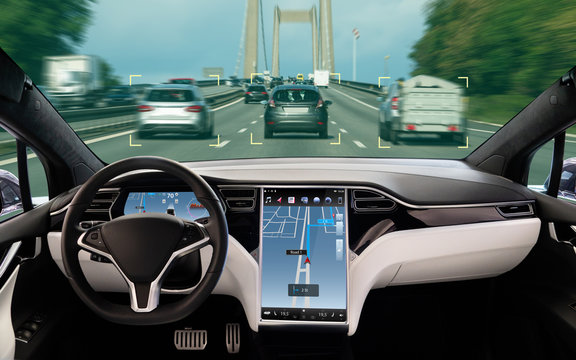In recent years, electric vehicles (EVs) have shifted from the margins to the mainstream, thanks to innovations in artificial intelligence (AI) and sustainable technology. According to Bloomberg Green, global EV sales are expected to reach 31.1 million by 2030, a significant leap from the 3.1 million sold in 2020. This rapid growth is largely driven by advancements in AI, which is revolutionizing everything from vehicle design to energy management. In this article, we’ll explore how AI and EV innovations are shaping the future of sustainable transport, offering insights into the latest trends and technologies propelling this exciting transformation.
The Role of AI in Electric Vehicles
AI-Driven Efficiency and Performance
AI technology is at the heart of many EV advancements. By leveraging machine learning algorithms, companies like Tesla and Rivian are enhancing vehicle performance and efficiency. AI systems can analyze vast amounts of data from sensors and cameras to optimize energy consumption and extend battery life. For instance, Tesla’s Autopilot uses AI to collect data from more than a million vehicles worldwide, continuously improving its self-driving capabilities.
Key Benefits of AI in EVs:
– Predictive Maintenance: AI can predict potential vehicle issues before they occur, reducing downtime and maintenance costs.
– Enhanced Safety: AI systems improve safety features, such as automated emergency braking and lane-keeping assist.
– Smart Routing: AI enables smart navigation systems that optimize routes for energy efficiency, considering factors like traffic and terrain.
Autonomous Driving: The AI Frontier
Autonomous driving, once a futuristic concept, is now becoming a reality, largely due to advances in AI. According to Reuters Mobility, companies like Waymo and Cruise are leading the charge with AI-driven autonomous vehicles that promise to reduce traffic congestion and lower emissions. By eliminating human error, these vehicles could significantly improve road safety.
Battery Innovations and Energy Management
Breakthroughs in Battery Technology
The success of EVs hinges on battery technology, and recent innovations are promising. According to Battery University, solid-state batteries—offering higher energy density and faster charging times—are on the horizon, potentially transforming the EV landscape. Brands like Volkswagen and Hyundai are investing heavily in this technology, aiming to launch solid-state battery EVs within the next decade.
Current Battery Advances:
– Lithium-Iron Phosphate (LFP): Known for its safety and longevity, LFP technology is becoming more popular, especially in markets like China, where BYD is leading the way.
– Fast Charging Solutions: Companies are racing to develop ultra-fast charging networks. For example, Tesla’s Supercharger V3 can add up to 75 miles of range in just 5 minutes.
Energy Management and Smart Grids
AI is also enhancing energy management systems. By integrating with smart grids, EVs can help balance energy loads and support renewable energy sources. According to the International Energy Agency (IEA), this integration is crucial for reducing carbon footprints and ensuring sustainable energy consumption.
The Future of Mobility: Integration and Infrastructure
Building the Infrastructure for Tomorrow
The transition to an EV-dominated future requires robust infrastructure. According to InsideEVs, the global EV charging station market is projected to grow at a CAGR of 39.8% from 2021 to 2028. Governments and private companies are investing in expanding charging networks to make EVs more accessible.
Key Infrastructure Developments:
– Wireless Charging: Companies like Qualcomm are developing wireless charging technology, promising convenience and efficiency.
– Vehicle-to-Grid (V2G) Systems: V2G technology allows EVs to return electricity to the grid, providing energy storage solutions and enhancing grid stability.
Practical Tips for Prospective EV Owners
For those considering an EV purchase, here are some practical tips:
1. Evaluate Charging Options: Assess the availability of home charging solutions and public charging stations in your area.
2. Consider Total Cost of Ownership: Factor in potential savings on fuel and maintenance when comparing EV prices.
3. Stay Informed on Incentives: Many governments offer incentives for EV purchases, which can significantly reduce the upfront cost.
Conclusion: Driving Towards a Sustainable Future
The convergence of AI and EV technologies is driving a transformative shift in sustainable transport. These innovations promise not only to reduce emissions but also to enhance safety and efficiency on the roads. As we look to the future, the collaboration between AI and EVs will be crucial in achieving a more sustainable and connected world. Are you ready to embrace the electric revolution? Share your thoughts in the comments below and join the conversation on the future of mobility.
In conclusion, as AI continues to evolve, we can expect even greater advancements in EV technology, paving the way for a cleaner, greener future. Stay tuned to see how these exciting developments will shape the way we move in the years to come.

